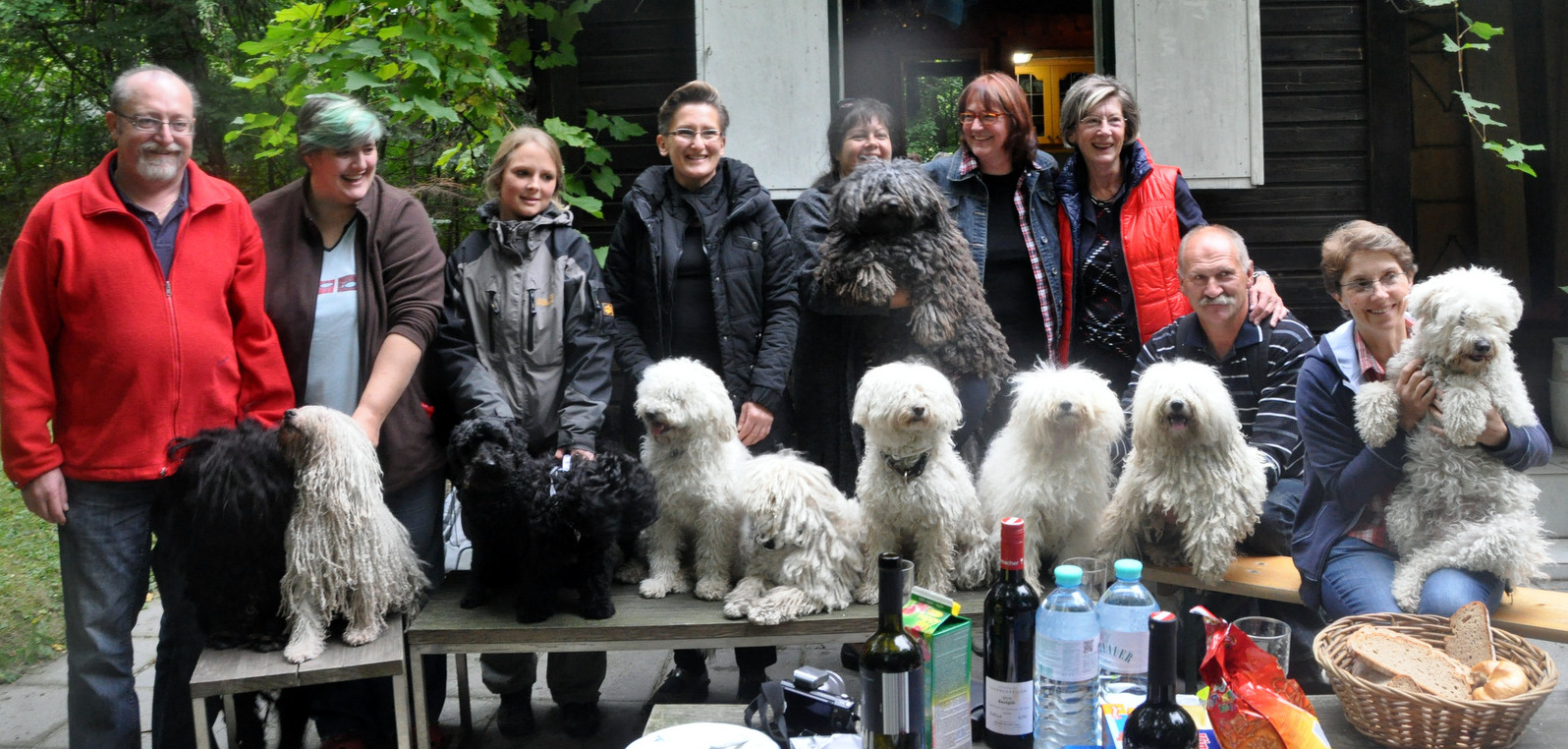Origin and history
The Puli is certainly one of the oldest known dog breeds. During archaeological excavations in Mesopotamia, for example, amulets about 4000 years old were found, which show an astonishing similarity with today’s Puli. They probably came to Hungary in the 9th century as companions of the Magyars when they settled in the Carpathian Basin.
Ferenc Pápai Pariz (1708, 1767), Ferenc Pethe (1815) andFriedrich Treitschke (1840) provided the early descriptions of theHungarian shepherd dogs.
The first breed standard for the Puli was set in Hungary in 1915. Dr. Emil Raits (Professor at the College of Veterinary Science, Budapest), who drew up exact descriptions of the Hungarian shepherd dog breeds, earned special merit in this matter. The “original” standard was further developed in 1924 and finally acknowledged by FCI.
“Ez nem kutya, hanem puli” (This is not a dog, this is a Puli) – a saying that is widespread in Hungary. A good Puli was worth a lot to the shepherds in the Hungarian Puszta. Many say that a shepherd had to pay almost an annual salary for a good Puli.
Many of the incomparable character and character traits can be explained by the long, consistent breeding selection over decades, even centuries.
The Puli is lively, vigilant, tireless, faithful and an affectionate learnee. Characteristics that have been preserved to this day, even though Puli’s original purpose in life has been lost. Today he guards his house and family with never-ending perseverance.
Due to its size and robust health, the Puli is considered a long-living dog. It can live to 15 years and more. This means a (hopefully) long-term partnership and responsibility when he joins your own family.
Attentive and lively, it guards its “herd” and property. The need to keep their own “herd” together has also been described several times by Puli-holders in amusing anecdotes (e. g. the”gathering” of children with barking and slight pinching).
Yeah, Puli’s voice is something special. It serves the alarm, the reporting and above all also the own needs. With our puli “Gillike” we experience 12 different ways to bark (or as we say to speak) at least . If someone approaches the own territory (house, apartment, office, garden), it is registered loudly, in typical Puli barking.
If he feels himself unfairly reprimanded or punished, he masters the game “Dominance through Ignorance”. If he is offended it can happen that he retires (“I don’t know you anymore”) and the whole thing can last for half a day. We found this speciality when we were away for a few days the first time. Despite the best and loving care within the family, Gillike always makes us feel that she absolutely does not agree with the separation.
“Come along” and “stop off” are real magic words to keep our Puli in a good mood. “Stay”, on the other hand, is a real non-word. She accepts it and she stays behind but she will never like it.
Pulis are eager to learn and extremely receptive. They are therefore suitable as normal family dogs as well as therapy or rescue dogs.
Praise and consistent action are also the priority measures in the education of the Pulidogs. Our club is happy to help with words and deeds if something gets out of hand in education. In our club, we have normal family dogs as well as all kinds of therapy dogs (psychotherapy and guidance) and even some rescue dogs. We have national and international Champions and very successful breeders. So, a lot of experience to assist you.
Finally let me tell you, that you will be surprised how quickly and successfully the new family member seems to read your wishes from your eyes! A Puli is no ordinary dog. He knows that and is demanding it’s special status.

